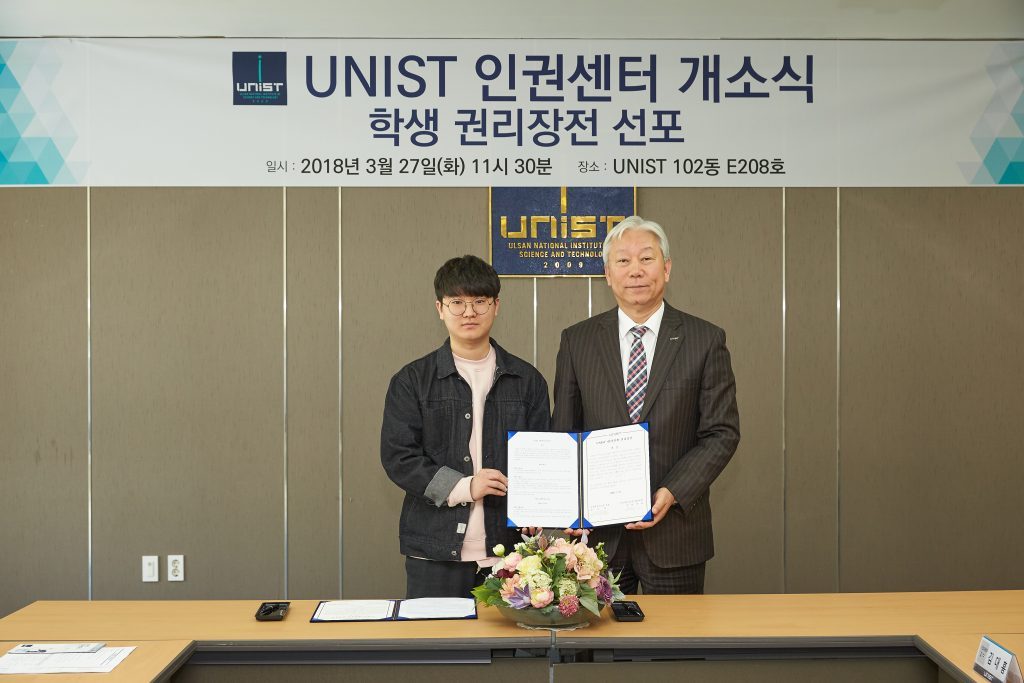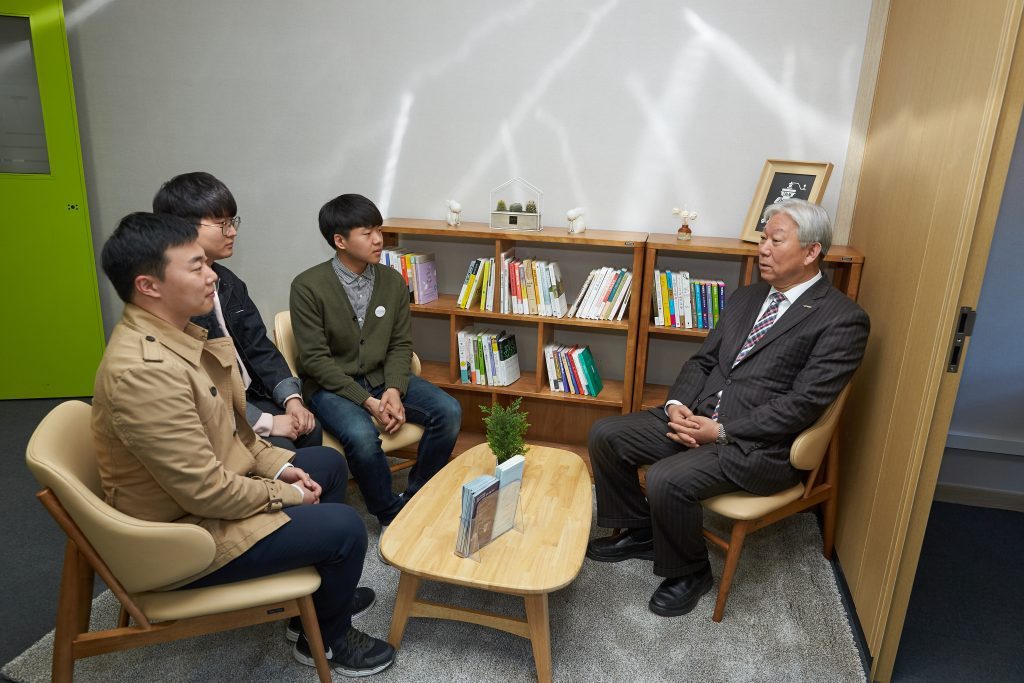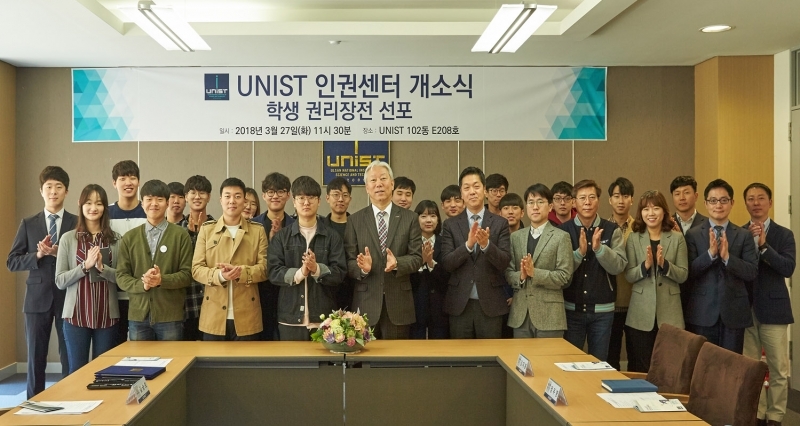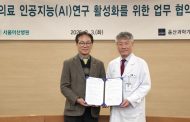UNIST has announced the launch of a new human rights counseling office space within the Engineering Building I (Room E208) to help promote and protect the rights and freedoms of its students.
The grand opening celebration was attended by President Mooyoung Jung of UNIST, university officials, as well as both the undergraduate and graduate student councils. The ceremony was also followed by the proclamation ceremony for the UNIST Students’ Bill of Rights by the UNIST Student Committee.
The new center, dubbed UNIST Human Rights Center provides integrated services and protection measures on violations against human rights through in-depth investigations. To carry out its mission, the new center will work closely with a broad spectrum of researchers and professional counselors, all of whom are committed to human rights and equality.

The bill signing ceremony for UNIST students’ Bill of Rights was held on March 27, 2018. From left are Vice President of UNIST Student Council and President Mooyoung Jung of UNIST.
UNIST Human Rights Center is an institutional framework, designed to prevent any occurrence of improper conduct through abuse of authority. Among the other four national institutions of science and technology, UNIST and KAIST are the only ones that currently operate human rights centers.
The establishment of this center is part of efforts by the Ministry of Science, Technology and ICT (MSTI) to nurture a research environment that supports research of the highest standards of rigor and integrity. The ministry is currently exploring a number of options, in order to establish institutional frameworks for the protection of student rights and educate them about the crucial role science plays in human rights.
All UNIST students can receive a face-to-face consultation with professional counselors from the UNIST Human Rights Center through online or walk-in reservations. Once their dispute reports are received, counselors will proceed on-site counseling services. This will be followed by in-depth investigation and proper mediation. If the conflicts become difficult to resolve, the issues will be reinvestigated by the National Human Rights Commission of Korea or the Sexual Harassment/Sexual Violation Committee, comprised of university officials and professional counselors.

President Jung is talking with students at the UNIST Human Rights Center.
Under the leadership of Professor Sang Kyu Kwak in the School of Energy and Chemical Engineering at UNIST, the center seeks to provide a learning and teaching environment where all students, faculty and staff feel safe and respected.
Meanwhile, through the declaration of the UNIST Student Bill of Rights, all the attendees at the event affirmed the fundamental rights and freedom shared by all individuals on campus without discrimination of any kind as to gender, race, ethnicity, language, as well as religion. The center currently provides confidential counseling services to registered students, but will soon expand access to professional counseling for all UNIST faculty and staff.
“The recent MeToo campaign not only gives the survivors of sexual assault the courage to speak up, but it also let us look back at the concept of human rights in academic settings,” says President Jung. “By limiting the number of human rights blind spots, the center aims to deter and prevent future human rights abuses against students.”










![[2026 Matriculation] UNIST Welcomes Class of 2030!](https://news.unist.ac.kr/wp-content/uploads/2026/02/사진-박종래-UNIST-총장이-2026년-입학식사를-전하고-있다-2-190x122.jpg)
![[2026 UNIST Commencement] UNIST Confers Degrees to 883 Graduates](https://news.unist.ac.kr/wp-content/uploads/2026/02/사진-2026학년도-UNIST-졸업생들이-학사모를-위로-던지며-졸업을-축하하고-있다-1-800x413-190x122.jpg)



